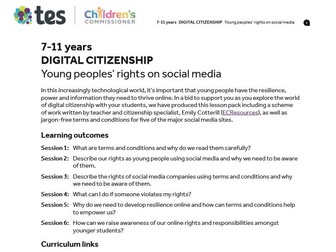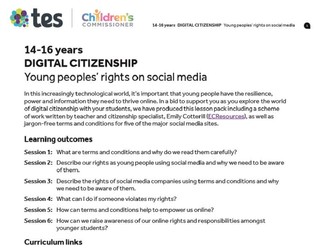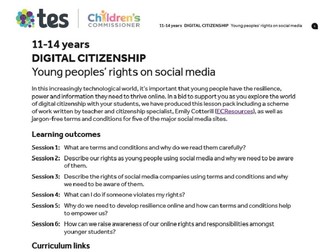Digital citizenship: Young peoples’ rights on social media - Teaching pack for 7-11 year olds
Designed to help students aged 7 to 11 develop the resilience, power and information they need to thrive online, this teaching pack comprises:
• a short, six-lesson unit of work written by teacher and citizenship specialist Emily Cotterill (ECResources), and
• jargon-free terms and conditions for five of the major social media sites, produced by the Children’s Commissioner for England and privacy specialists, Schillings
The Children’s Commissioner is committed to raising young peoples’ awareness of their online rights and is working in partnership with Tes to enable children to become better informed digital citizens.
These lessons have been designed to enhance citizenship and computing curriculums around the world. By the end of the unit, we hope that students will be able to:
• Understand that there are different kinds of responsibilities and rights, and that they can sometimes conflict with one another
• Understand why and how rules and laws are made and enforced, and why different rules are needed in different situations
• Think critically, behave safely and participate responsibly in the digital world
• Recognise unacceptable online behaviour and ways to report concerns about content
Note: These lessons have been devised according to simplified versions of social media T&Cs relevant to the UK. While there may be some variation in other countries, the general principles are transferable.


